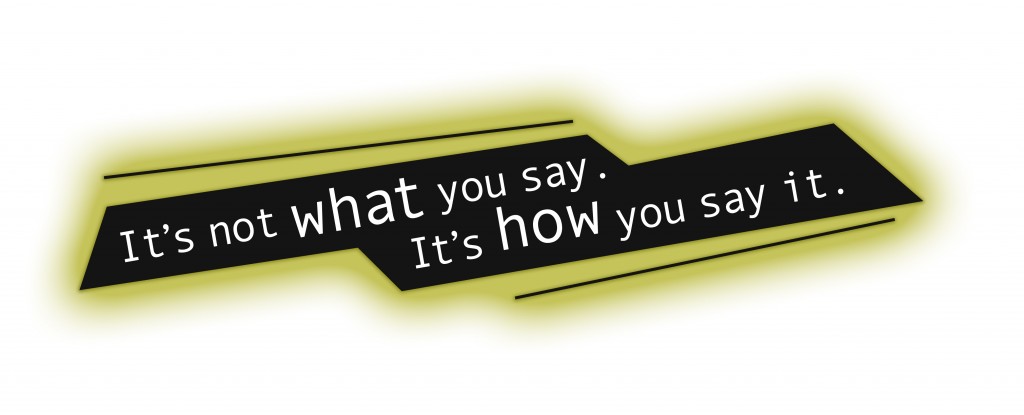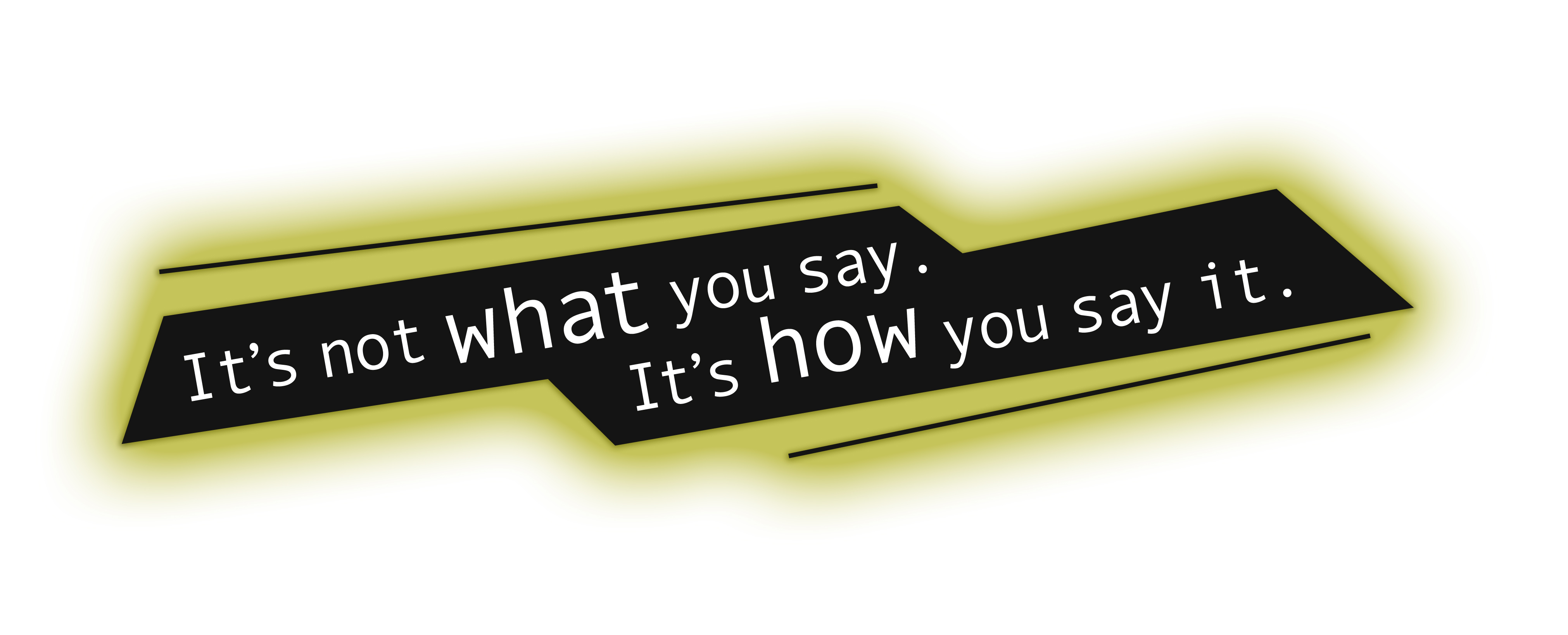
It’s been bugging you. Something your colleague said at a meeting last week that made you feel attacked. You weren’t sure you heard it right, and the two of you have conveniently avoided each other for the past week, but you just can’t let it go. Not only can you not let it go, you’ve decided to tell everyone else about it.
As a communication strategist and coach, I hear all too often my clients sharing situations where they felt slighted, sabotaged or simply dismissed. My first question is always, “How did you address your concerns with this person?” Most often I hear they did not for any number of reasons: “They won’t listen, they don’t have the time, they don’t care…”
The downside of not having a direct and candid conversation with a colleague (your direct report, your peer or your manager) is that nothing gets resolved, tension remains high, and resentment rules the day.
Recently, I heard an interview with Sally Kohn on “emotional correctness”. (“Let’s Try Emotional Correctness“) Sally is a columnist political pundit on CNN news and as she likes to say, the better she does her job, the more people dislike her. She argues with people for a living and manages a pretty hostile working environment. As challenging as her role is, she has learned a valuable lesson that falls into the category of “it’s not what you say but how you say it.” Sally states that rather than focusing on political correctness, we should focus on emotional correctness – the tone, the feeling behind what we are saying and the respect and compassion we show one another.
Political persuasion begins, she says, with being emotionally correct. You can be politically right but emotionally wrong and lose the argument. In other words, no matter how “right” you are, if you can’t communicate your message in a tone that others can listen to, they simply won’t like you and will not hear what you have to say.
Here are her suggestions:
• Treat your adversaries like you do your grumpy uncle (or other family member you tangle with) who you always argue with but at the end of the day you care for and respect one another and always part in peace.
• Strive to appreciate the value of someone else’s experience, even if its not your own. What aspect of what they are saying can you content with emotionally?
• Remember you can’t get anyone to agree with you unless you like him or her first.
The best compliment we can get is: “I don’t agree with your beliefs, but I really like you as a person.”
I encourage you to say it, rather than suppress it. Think for a moment about that person whom you struggle to get along with. Beyond the disagreement, what is it about that person you can connect with – family, hobbies, interests, their hopes and dreams, their fears? What do you both mutually agree upon – a successful project completion, a great customer experience, or meeting a deadline? Find that common ground, first.
There is an old expression, “If it is mentionable, it’s manageable.” If you communicate, with respect and compassion for the other person – no matter how different your viewpoints are, you will be able to resolve the issue at hand and create a new pathway for future success and collaboration. And the weight of suppressed, stuffed feelings will evaporate, leaving you more ready to take on the next opportunity.







